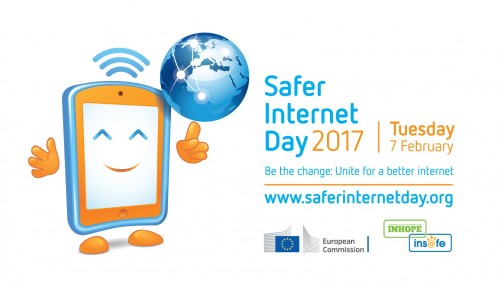
A safe and civil Internet doesn’t depend on just you or me. It depends on all of us – that includes businesses, schools, organizations, local communities, and individuals. This year Cloudbric is a proud supporter of Safer Internet Day, an awareness-raising campaign that started in Europe more than a decade ago and is now celebrated in more than 100 countries on February 7 each year.
In the United States, Safer Internet Day was officially recognized in late 2012 with ConnectSafely.org as the US’s coordinator. From cyberbullying to social networking, Safer Internet Day aims to raise awareness of emerging online issues and chooses a new topic each year to reflect current concerns. Because the theme for this year is “Be the change: Unite for a better internet” and with the popularity of social media networks on the rise, Cloudbric has prepared our top five online safety tips for social media.
1. Avoid oversharing
Social engineering tactics have long been used by cybercriminals to extract personal information from victims, and social media is just one channel that has worked to their advantage. By honing in on the victim’s trust, cybercriminals can piece the puzzle together from the information they’ve gathered to orchestrate a sophisticated, and often customized, social engineering campaign to steal your personal information or even identity. These “social hackers” prey on the carelessness of their victims, so think twice before announcing your whereabouts or upcoming trips on social media.
2. Always report suspicious activity
It’s better to be safe than sorry when it comes to online safety. Cyber crimes are not solely restricted to data or identity theft; cyber bullying and other cyber crimes are prevalent as well. With the expansion of social media and the anonymity of the web, it has become more much easier for cyber criminals to harass others online. Luckily, most (if not all) social media networks have an option that allows you to report users if another person’s behavior online is making you uncomfortable. It also allows you to flag spam comments and inappropriate and offensive content. Finally, there are various third party organizations in which you can report suspicious behavior to, such as the CyberTip Report.
3. Be careful what you post – what you say online, stays online
Here’s a friendly reminder that what you post online may remain online…forever. This fact alone is frightening. Social media is a powerful tool for expressing your voice online and if you’ve taken a recent look at your Facebook or Twitter feed you’ll notice right away that most posts are dominated by opinions. However, a single post can pose serious security consequences or cost you your job. Take this CEO who lost his job after posting that he will kill Donald Trump. Even scarier is the security dangers associated with geotags. If geotags, which reveal the exact time , date and location the photo was taken, are enabled when you’re uploading photos online, you may be exposing your exact location to cyber criminals. If you are uncomfortable with sharing your exact location make sure geotags are disabled!
4. Tighten your privacy settings
Your digital footprint is in your hands. However, sometimes we make mistakes when it comes to what we post online. Thankfully we have control of who can view our posts and other personal information. It’s important to control who looks at this information so check your current privacy settings on your social media accounts so they are set to be only viewed by users you are comfortable sharing posts and personal profiles with. Another good tip is to verify users who are trying to follow or add you on social media. As previously mentioned, social engineering campaigns can be personalized to feign familiarity and possibly trick you into revealing personal information. So, ask a mutual if they actually know them before accepting such requests on social media.
5. Beware of public Wi-Fi
If Facebook’s own CEO Mark Zuckerberg’s Twitter and Pinterest accounts can be hacked, then your social media accounts could be too. Due to their popularity, your social media accounts are high targets for hackers, and signing on while on a public Wi-Fi can be especially dangerous and put you at risk for identity or financial theft. Cyber criminals can take of advantage of unprotected Wi-Fi networks to take control of your accounts even if you set a strong password. All a hacker needs is a computer and readily available software that can break into public Wi-Fi networks to scan your personal information.
Final thoughts
Social media has become major part of our modern lives. But social media has its downsides. For example, sharing a little much online can lead to privacy and security breaches. Hackers can prey on your social media accounts to sniff out information for their own benefit and if you’re on public Wi-Fi the risks are much higher. What you thought was a harmless, quick status update to your account may lead to grave consequences including identity theft. Online safety does not only mean deterring hackers but also being smart while utilizing the Internet. In honor of Safer Internet Day, Cloudbric is united with other supporters for a better Internet and invite you to participate by using the hashtags #SID2017 and #SaferInternetDay to spread awareness.





